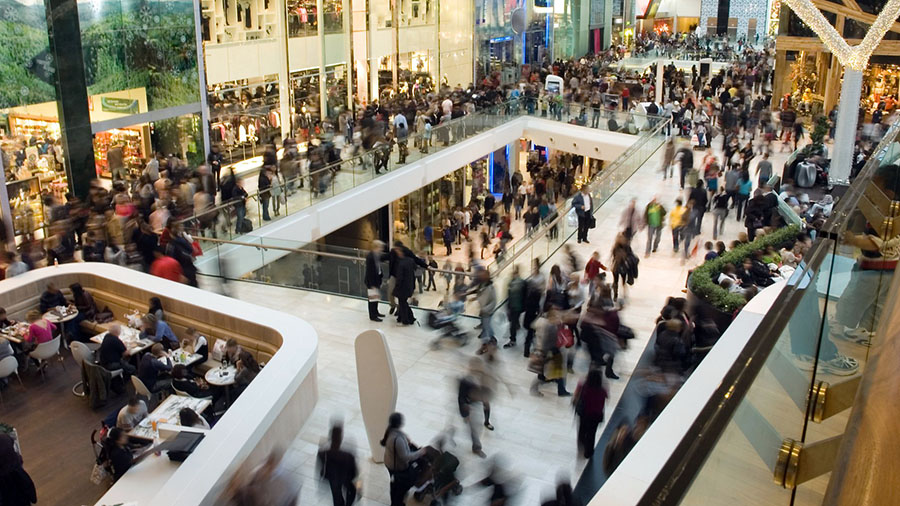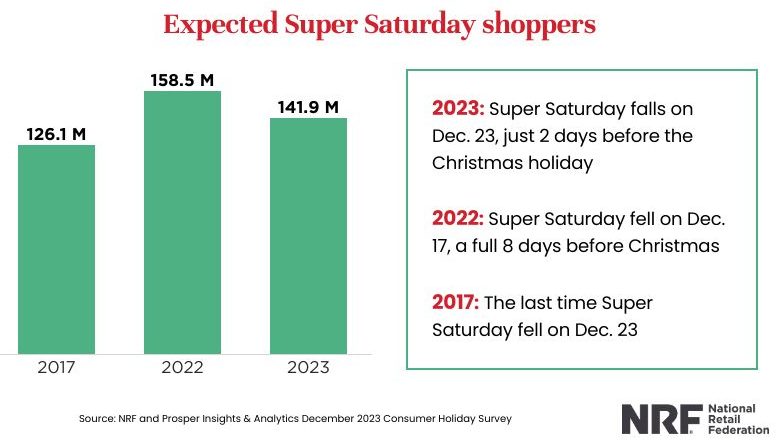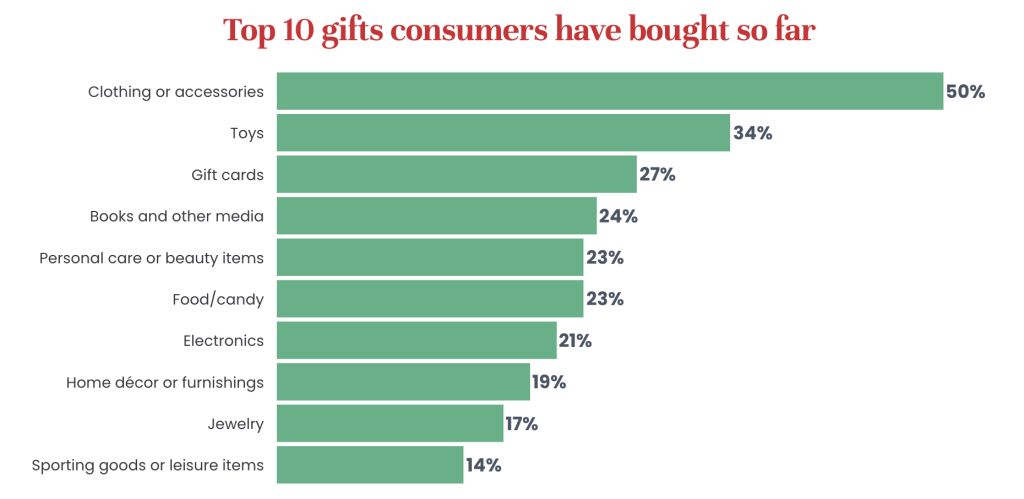Nearly 142 million consumers plan to shop on the last Saturday before Christmas, according to the latest survey from the National Retail Federation and Prosper Insights & Analytics. The number of expected shoppers is up significantly from the last time Super Saturday fell on December 23, when 126 million consumers were expected to shop on that day in 2017.
“Traditionally, Super Saturday marks the final major shopping holiday of the year,” said NRF President and CEO Matthew Shay. “While most consumers still have plenty of shopping left to do, retailers are prepared both online and in stores with gifts, decorations and other items that people need to make this season fun and memorable.”
The NRF suggested that with Super Saturday only two days before this year’s Christmas holiday, more consumers plan to purchase last-minute gifts and other holiday items in-store. Approximately 53 million (37 percent) Super Saturday shoppers expect they will shop exclusively in stores this year, up from about 44 million (28 percent) last year, and 58 million (41 percent) plan to shop online and in stores, with around 31 million (22 percent) planning to shop exclusively online.
As of early December, holiday shoppers reportedly purchased about one-half (49 percent) of the items on their holiday lists. For those who still have more than one-half of their shopping to do, over one-third (36 percent) said they are still figuring out what to buy. And consumers may also be waiting for the best deals. In November, 85 percent of Thanksgiving weekend shoppers said they expected the deals during the rest of the holiday season to be the same or better than Thanksgiving weekend.
“This year’s Super Saturday is truly aligned for last-minute shoppers,” offered Prosper Insights & Analytics EVP of Strategy Phil Rist. “A majority of consumers also plan on purchasing their last gift in the week leading up to Christmas.”
Popular shopping destinations where consumers will finish their holiday shopping include online (49 percent), department stores (38 percent), discount stores (28 percent), clothing and accessories stores (26 percent), and grocery stores (19 percent).
The top gifts consumers have purchased so far include clothing (50 percent), toys (34 percent), gift cards (27 percent), books and other media (24 percent), and personal care or beauty items (23 percent).
According to the NRF survey, holiday shopping will continue through the end of December and into early January. Most consumers (70 percent) plan to shop the week following Christmas Day, December 25. The top reasons consumers shop that week are to:
- take advantage of holiday sales and promotions (48 percent),
- use gift cards (26 percent), and
- return or exchange unwanted gifts and holiday items (16 percent).
The NRF survey asked 7,973 adult consumers about their holiday shopping plans. It was conducted December 1-6, with a margin of error of plus or minus 1.1 percentage points.
According to the NRF’s holiday forecast, holiday spending will reach record levels during November and December and grow between 3 percent and 4 percent over 2022, totaling $957.3 billion to $966.6 billion. By comparison, last year’s holiday sales totaled $929.5 billion.
















